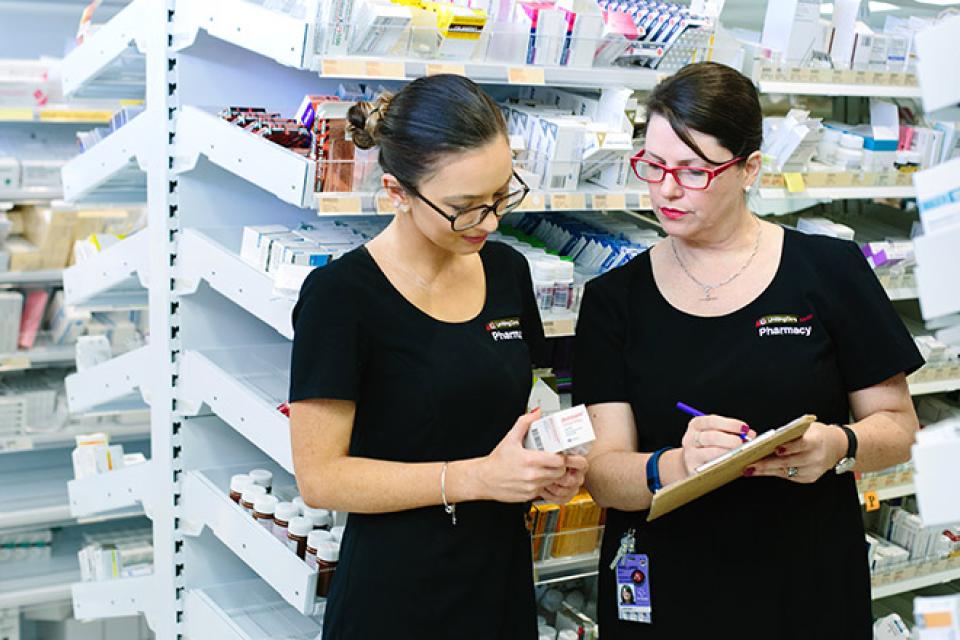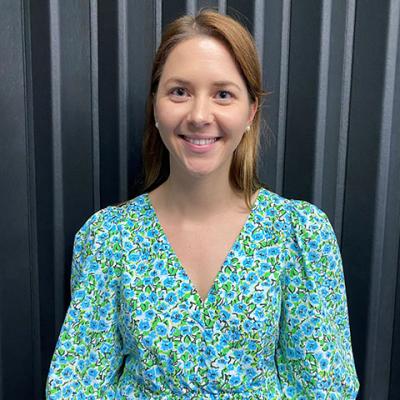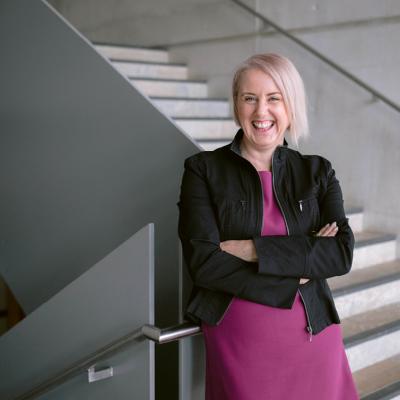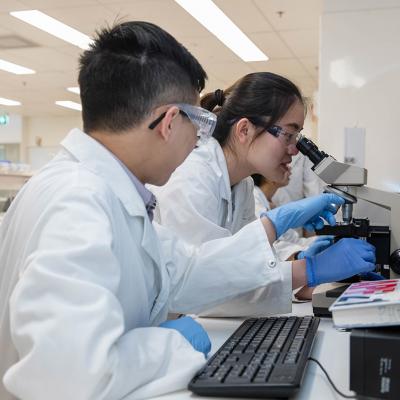Grace Lucas, a clinical pharmacist at Brisbane’s Princess Alexandra Hospital, shares her top reasons to undertake postgraduate study and how The University of Queensland’s clinical pharmacy postgraduate program has benefited her career and her patients.
1. Increase your pharmacy job opportunities
Postgraduate pharmacist qualifications can be highly regarded in the workplace.
If you’re a hospital pharmacist looking for career progression, a pharmacist looking to delve into research, or a community pharmacist – particularly if you’re looking to make the leap into hospital pharmacy – postgrad study could be a great option for you.
Postgraduate pharmacist qualifications are often highly desirable on your CV for many organisations, and they can help you stand out from the crowd of other applicants and progress your career in pharmacy.
2. Access new learning experiences
For a lot of us, our undergraduate studies may have been a long time ago. Our clinical knowledge can easily become out of date if we’re not careful.
Undertaking pharmacy postgraduate opportunities at UQ can assist with not only getting you back up to speed with the clinical skills you graduated with, but also with developing new knowledge in areas beyond those covered in your undergraduate degree.
By learning from experts in the field, you open yourself to unique opportunities to expand your pharmacy knowledge base and ensure you’re always providing evidence-based clinical interventions in the workplace.
“Postgraduate studies have made me more confident in the recommendations I make clinically, working in hospital pharmacy.”
3. Broaden your network
You will meet interesting people and make new friends. Postgraduate studies allow you to network with like-minded individuals, and you never know what doors these contacts could open for you in the future. You’ll have the opportunity to meet and learn from pharmacists and clinicians from many different backgrounds and cultures.

4. Kickstart your journey to becoming a pharmacist in research
As health professionals, we all know the importance of research, but we often don’t know how to go about getting started in the area. Research offers a huge variety of career paths, both within the university and in the private sector. Studying a postgraduate program can link you up with the right contacts to provide you with guidance and support to embark upon a career as a research pharmacist.
“Postgraduate studies have also taught me how to critically appraise medical and pharmaceutical literature – a skill I have continued to benefit from throughout my practice.”
5. Get motivated to become the best pharmacist you can be
Postgraduate studies are motivating. They have encouraged me to grow and develop as a pharmacist, with not only many positives for myself and my hospital department, but also for my patients.
The new skills learnt can be inspirational in terms of making change happen, and this is very important in the workplace. Personally, I found it hard to find time outside of work to do extra learning, but enrolling in a postgraduate program provided me with the motivation to commit to study again and gain the skills to help me become a better clinician.






